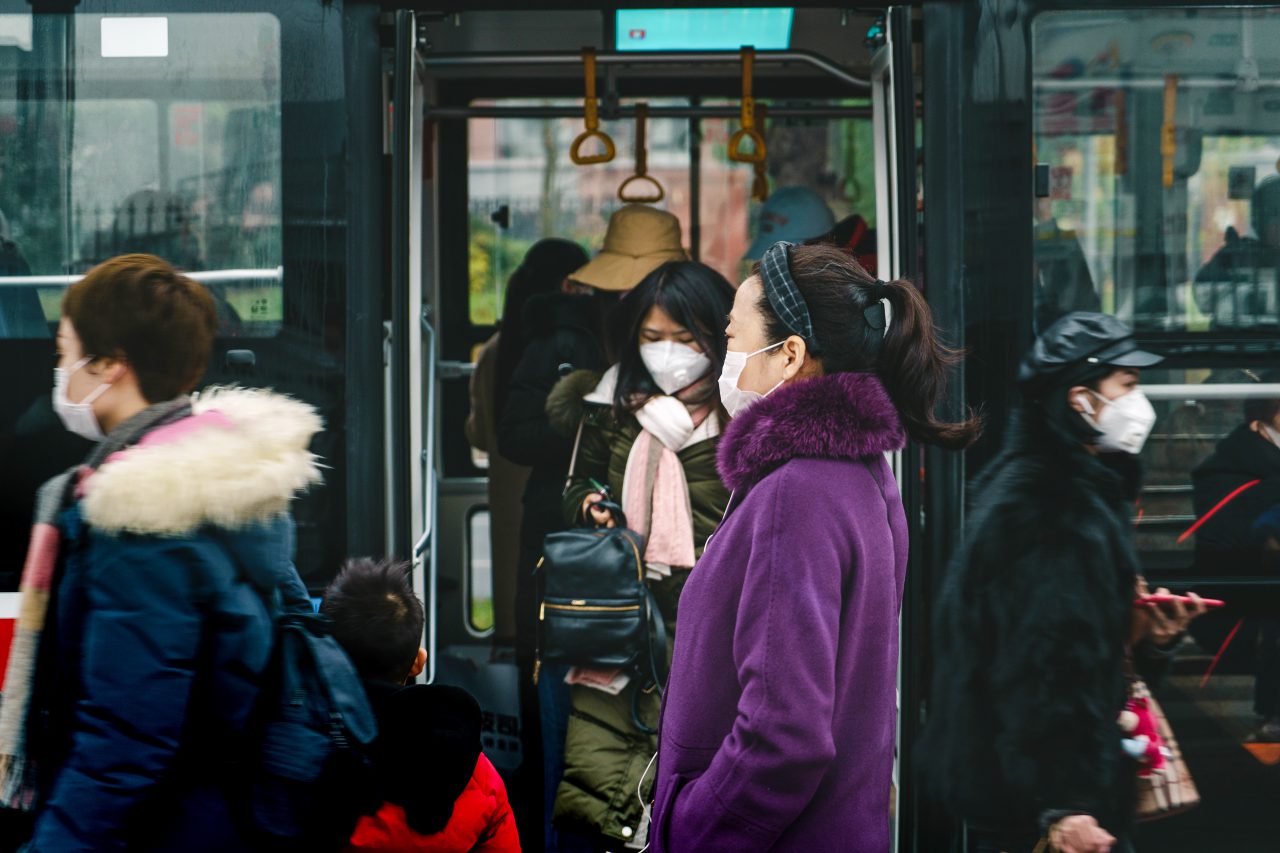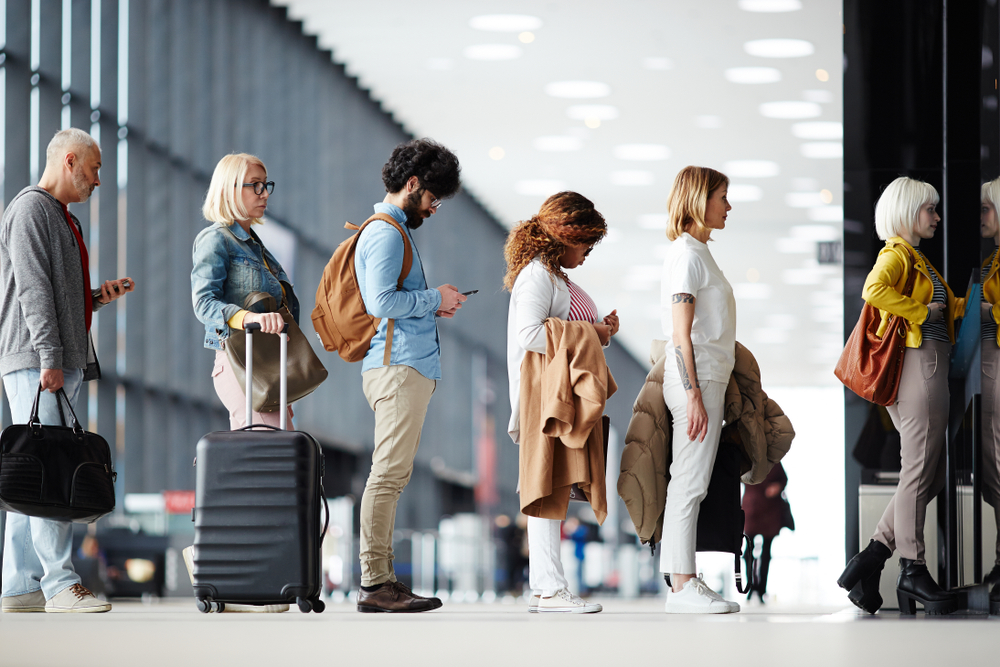The U.S. State Department is warning Americans not to travel to 50+ countries across the globe.
Updated: March 30th, 2020
The Coronavirus — a virus that causes a fever and symptoms of the upper respiratory system, like a sore throat, coughing, and a runny nose — has spread to at least 102 countries, with roughly 750,000 confirmed cases and 35,000 deaths worldwide.
On January 30th, 2020, the World Health Organization declared this Coronavirus strain (2019-nCoV) a global health emergency. Shortly after, the U.S. Department of State changed their travel advisory from “reconsider travel to China” to “do not travel.”
On February 24th, 2020, the Centers for Disease Control and Prevention issued an additional “Level 3: Do Not Travel” warning, encouraging travelers to avoid all nonessential travel to South Korea, quickly followed by Italy and Iran, “Most of Europe,” the UK and Ireland.
New additions to the “Level 3: Do Not Travel” list include: Australia, Brazil, Canada, Chile, Japan, Israel, Malaysia, Pakistan, Thailand and Turkey.
When it comes to Coronavirus and travel, do you need to cancel your upcoming trip?.Here’s everything you need to know about Coronavirus, China, immediate travel bans (and more), updated March 30th, 2020:
Coronavirus 2020: Is there a travel ban? Should I change my plans?

On January 30, 2020, the U.S. Department of State changed their travel advisory from “reconsider travel to China” to “do not travel to China.”
Americans with plans to travel to China:
The advisory for China now stands at “Level 4: Do Not Travel”.
Major airlines like American, Delta and United have suspended all flights to China until April, and cruise ships with China stops are cancelling or rerouting itineraries.
Additional changes may come, so check directly with your airline or travel agent for the latest.
TLDR: If you haven’t already, postpone/cancel those booked China travel plans.
Americans currently in China:
Americans who are already in China “should consider departing using commercial means,” the State Department said Thursday night.
According to the Washington Post, the United States will funnel all flights from China to the United States through seven airports. Americans returning to the United States from China’s Hubei province within will face a mandatory quarantine. Americans returning to the United States from other parts of China will face a self-quarantine up to 14 days.
TLDR: While there’s no need to panic, book a flight back to your home base as soon as possible. Unfortunately, you can also expect two weeks of quarantine.
Americans with plans to travel to South Korea, Iran and Italy, and “Most of Europe”
On February 24th, 2020, the Centers for Disease Control and Prevention issued a “Level 3: Do Not Travel” warning against travel to South Korea.
Since Coronavirus first entered the country, there are now over 1,400 outbreaks — the largest outside of China.
Angelo Borrelli, head of Italy’s Civil Protection agency, confirmed the death toll has risen. At the start of March, the death toll is at 107 and at least 3,100 people have been infected with coronavirus in Italy.
The towns of Codogno, Castiglione d’Adda, Casalpusterlengo, Fombio, Maleo, Somaglia, Bertonico, Terranova dei Passerini, Castelgerundo and San Fiorano in Lombardy and Vo’ Euganeo in Veneto were the first to enter lockdown. As a result, around 100,000 people are faced travel and other restrictions.
On March 9th, 2020, Italy’s Prime Minister Giuseppe Conte placed the entire country on lockdown and ordered people to stay home other and avoid all nonessential travel.
Americans with plans to travel to Japan
Japan is experiencing sustained community spread of respiratory illness (COVID-19) caused by the coronavirus and are now “Level 2: Practice Enhanced Precautions.”
Europe Travel Ban
On March 11, President Trump announced that the US “will be suspending all travel from Europe to the United States for the next 30 days.” The restrictions apply to non-U.S citizens who have visited these 26 countries in the last two weeks: Austria, Belgium, Czech Republic, Denmark, Estonia, Finland, France, Germany, Greece, Hungary, Iceland, Italy, Latvia, Liechtenstein, Lithuania, Luxembourg, Malta, Netherland, Norway, Poland, Portugal, Slovakia, Slovenia, Spain, Sweden and Switzerland.
Notably, those traveling from Britain, Croatia, Cyprus, Ireland, Turkey and Ukraine are excluded from the travel ban.
U.S Domestic Travel Ban
On March 30th 2020, the Centers for Disease Control and Prevention issued a very rare domestic travel advisory urging people in New York, New Jersey and Connecticut to “refrain from non-essential domestic travel” for the next two weeks.
The CDC’s travel advisory does not apply to employees of critical infrastructure industries, including but not limited to trucking, public health professionals, financial services, and food supply and allows the Governors of New York, New Jersey, and Connecticut to have “full discretion to implement this Domestic Travel Advisory.
Is it safe to take a cruise?
No way, folks. On March 9th, 2020, the CDC advised all US travelers, particularly those with underlying health issues, to cancel cruise ship travel.
“Recent reports of COVID-19 on cruise ships highlight the risk of infection to cruise ship passengers and crew,” the CDC advisory reads. “Like many other viruses, COVID-19 appears to spread more easily between people in close quarters aboard ships.”
Is it safe to fly?

The risk factor for flying outside of China, South Korea, Iran, Europe and growing by the day. The CDC recommends that all non-essential travel be canceled.
TLDR: Cancel your trip to visit your Grandma in Florida, reschedule your weekend in Montréal — stay grounded and stay home.
What should I do to avoid contamination in airports?

Thorough hygiene and self care will keep prevent most colds and flus — including Coronavirus. If you absolutely have to travel, the CDC recommends: avoiding contract with sick people, avoid touching your eyes, nose or mouth with unwashed hands, wash your hands, use hand sanitizer, and cough into your elbow instead of your hands. If you are coughing, immunocompromised, or a chronic face-toucher, investing in a face mask may be worth it.
TLDR: Stay vigilant and clean, and some people will definitely benefit from wearing a face mask in crowded public spaces.